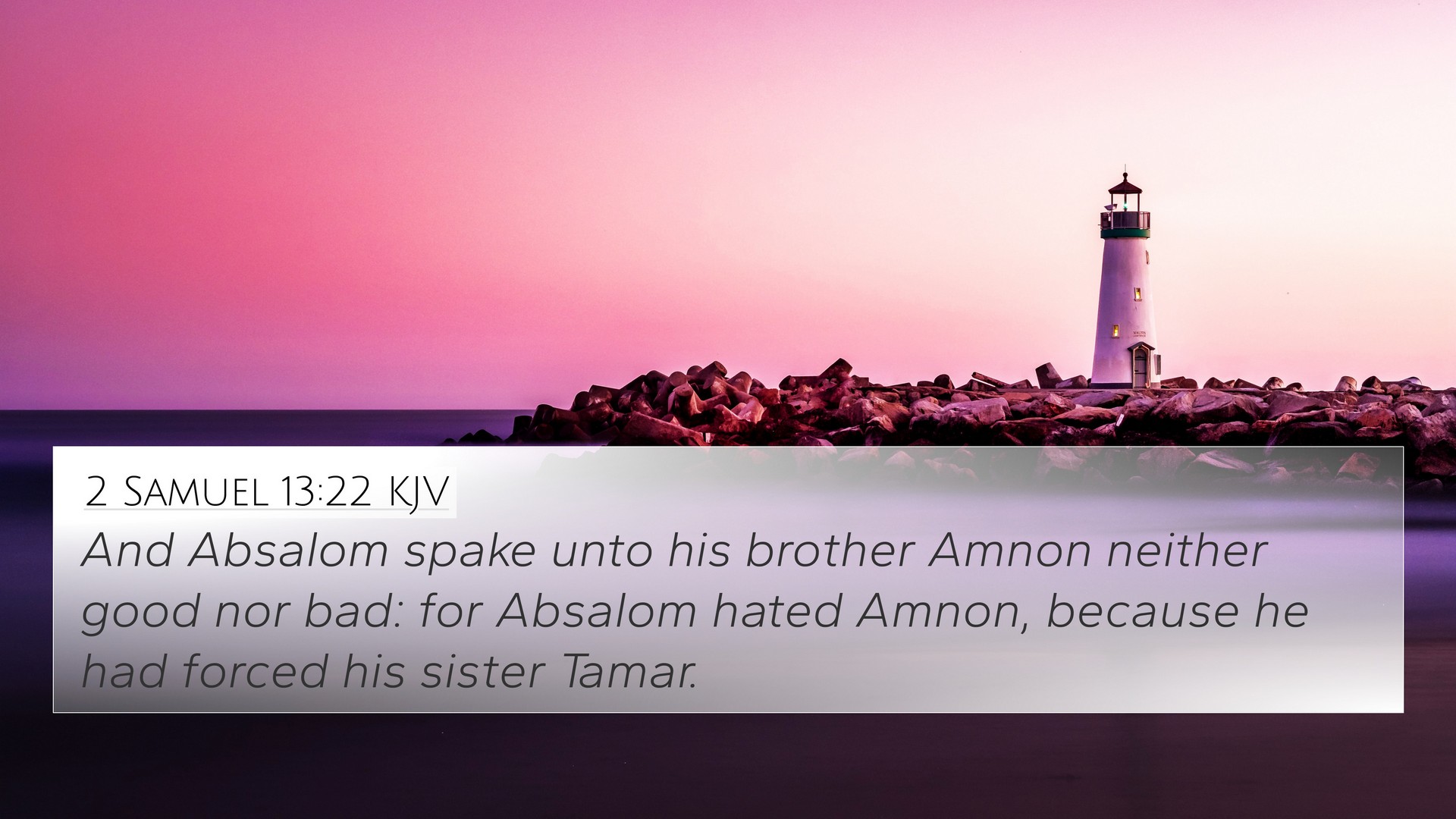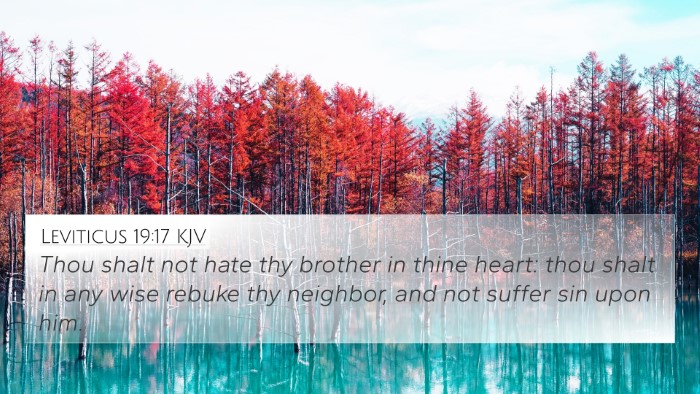Understanding 2 Samuel 13:22
Bible Verse: 2 Samuel 13:22 - "But Amnon did not listen to her; and being stronger than she, forced her and lay with her."
Summary of Meaning
This verse captures a moment of profound tragedy and violation within the narrative of David's family. Amnon, David's son, infatuated with his half-sister Tamar, succumbs to his violent lust, resulting in a devastating act of assault. This event foreshadows a series of familial conflicts and moral decay within David's household.
Contextual Background
The account is set within a broader narrative in 2 Samuel that illustrates the consequences of sin within David's family. Every event depicted is tied to the moral and ethical dilemmas faced by the characters, particularly King David, whose actions have ramifications for his children.
Commentary Insights
- Matthew Henry: Henry emphasizes the tragic consequences of lust and the power it holds over ungodly desires. He points out that Amnon's failure to heed Tamar's words reflects his moral depravity and the destructive nature of unchecked desires.
- Albert Barnes: Barnes notes the deliberate choice of Amnon to ignore Tamar’s pleas. He highlights the significance of Amnon's actions as a pivotal point leading to further discord and violence within David's lineage. Barnes draws parallels between this act and the later consequences David faces due to his own sins, particularly his adultery with Bathsheba.
- Adam Clarke: Clarke elaborates on the historical and cultural context, indicating that such actions were not only seen as morally repugnant but also as acts that could unravel family dynamics. Clarke also discusses the implications of power dynamics and coercion, underlining Tamar’s vulnerability in a patriarchal society.
Thematic Connections
This verse connects strongly with themes of sin, power, and familial strife. It serves as a warning against the destructive nature of lust and the fallout from immoral behavior.
Cross-References
Many Bible verses relate thematically and contextually to 2 Samuel 13:22. Here are some key cross-references:
- Genesis 34:2: The story of Shechem and Dinah, reflecting similar themes of sexual violence and familial disgrace.
- 2 Samuel 13:2: The setup for Amnon's desire indicating the origin of his sinful intentions.
- Proverbs 6:32-33: A warning against adultery, highlighting the consequences of such actions.
- Galatians 6:7: The principle that one reaps what they sow, applicable to David’s family turmoil post-Amnon’s actions.
- Psalms 51:4: David’s acknowledgment of his own sins, connecting his failures with the actions of his sons.
- 2 Samuel 13:28-29: The aftermath of Amnon's assault, showcasing the violent repercussions that follow.
- Jeremiah 17:9: The heart's deceitfulness, underscoring the moral failure exhibited by Amnon.
- Micah 2:1: Woe to those who plot evil, illustrating the heart condition that leads to such tragedies.
- Matthew 5:28: Jesus' teaching on lust equating it with adultery, reflecting a moral depth to Amnon's actions.
- Romans 1:26-27: Discusses the consequences of turning away from God, leading to twisted desires.
Application and Reflections
This verse calls for reflection on the nature of sin and its destructive capabilities. It reinforces the importance of maintaining moral integrity and accountability, not only as individuals but within family dynamics. Understanding the gravity of Amnon's actions helps in recognizing the need for vigilance against similar temptations and the necessity of fostering environments that prioritize respect and kindness.
Conclusion
2 Samuel 13:22 serves as a grim reminder of the consequences of unchecked desires and the complexity of human relationships tainted by sin. By utilizing tools for Bible cross-referencing, believers can better understand the interconnectedness of biblical narratives, drawing parallels that underscore essential themes relevant to practical faith and ethical living.

















